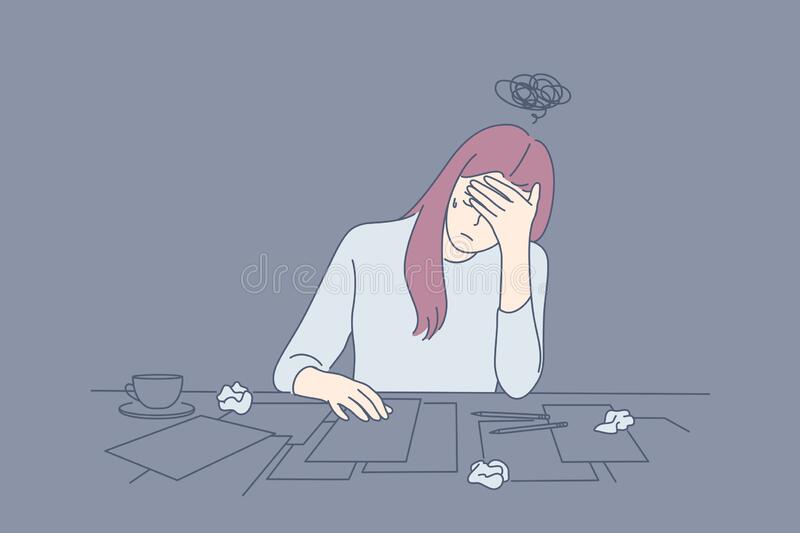Do you ever feel like you’re constantly under pressure? That no matter what you do, you can’t seem to please everyone? If so, you’re not alone. Social stress is a common problem that many people face every day. This type of stress can have a negative impact on your health and well-being, and it’s important to know how to deal with it. In this blog post, we will discuss the hidden causes of social stress and the effects it can have on your body. We’ll also provide some tips for how to manage this type of stress effectively.
Contents
Defining Social Stress
 Stress is not a new concept. In fact, it’s something that humans have been dealing with for centuries. The term “stress” was first coined in the 1930s by endocrinologist Hans Selye, who defined it as “the non-specific response of the body to any demand placed upon it.”
Stress is not a new concept. In fact, it’s something that humans have been dealing with for centuries. The term “stress” was first coined in the 1930s by endocrinologist Hans Selye, who defined it as “the non-specific response of the body to any demand placed upon it.”
So what role does the word “social stress” signify? Simply put, any stress that stems from our interactions with other people can be classified as social stress. This includes things like work stress, relationship stress, and even stress from dealing with difficult life transitions. Social stress can come from both positive and negative interactions with others. For example, getting married or having a baby are both major life events that can lead to social stress. While these are typically happy occasions, they can also be very stressful. On the other hand, negative life events such as divorce or the death of a loved one can also cause social stress.
In our fast-paced, modern world, it’s easy to feel like we’re always under pressure. We’re constantly juggling work, family, and social obligations. And, if we’re not careful, this can lead to social stress.
Signs And Symptoms
Because of the nature of life and its advancements, it has gotten even more difficult to identify social stress. Stress has become the new normal and we often don’t even realize when we’re under its influence. However, there are some signs and symptoms that can help you identify social stress in your life. Some common signs of social stress include:
- Feeling overwhelmed or out of control
- Difficulty sleeping or changes in sleep patterns
- Difficulty concentrating or making decisions
- Loss of interest in activities that you used to enjoy
- Increased irritability or anger
- Avoiding social situations
- Changes in appetite or eating habits
- Unexplained aches and pains
If you’re experiencing any of these symptoms, it’s important to take a step back and assess your stress levels. If you’re feeling overwhelmed, try to take some time for yourself and focus on taking care of your own needs.
Causes
 Humans are social animals. This means our brains are wired to strive on social stimuli. While this is beneficial in many ways, it can also lead to social stress. There are a number of things that can cause social stress, including:
Humans are social animals. This means our brains are wired to strive on social stimuli. While this is beneficial in many ways, it can also lead to social stress. There are a number of things that can cause social stress, including:
- Perceived or actual social threats: These can include things like public speaking, job interviews, or even just talking to someone you don’t know very well.
- Unrealistic expectations: We often put unrealistic pressure on ourselves to meet others’ expectations. This can lead to feelings of inadequacy and failure.
- Social comparison: Comparing ourselves to others is a common cause of social stress. We often compare our accomplishments, looks, and even our relationships to those of others.
- Sensitivity to rejection: Some people are more sensitive to rejection than others. This can lead to social anxiety and stress in social situations.
- Social injustice: If you see someone being treated unfairly, it can cause social stress. This is especially true if you feel like you can’t do anything to help.
- People pleasing: Almost everyone has a tendency to be a people pleaser at times. However, if you find yourself constantly putting others’ needs above your own, it can lead to social stress.
- Trauma: A traumatic event can cause social stress. This can include things like being the victim of a crime, witnessing violence, or being in an accident.
- Inability to cope with change: Change is a natural part of life, but some people have difficulty coping with it. This can lead to stress when things like moving to a new city or starting a new job.
- Lack of control: When we feel like we don’t have control over our lives, it can lead to stress. This can be caused by things like an unpredictable work schedule or a chaotic home life.
- Poor communication: Miscommunication is a common cause of stress in relationships. It can also lead to stress at work, especially if you’re not clear about your job duties.
As you can see, there are a variety of factors that can affect social stress. It’s important to be aware of these so you can identify them in your own life.
Link With Other Disorders
As we may be aware, mental and/or emotional domains can have a profound effect on our physical wellbeing. For example, studies have found that social stress is linked with a number of health problems, such as:
- Anxiety disorders: These include disorders like social anxiety disorder, generalized anxiety disorder, and panic disorder.
- Depressive disorders: Social stress has been linked with increased risk for depressive disorders, such as major depressive disorder and dysthymia.
- Eating disorders: Social stress has been linked with increased risk for developing an eating disorder, such as anorexia nervosa and bulimia nervosa.
- Obsessive-compulsive disorder: Social stress has been linked with OCD because of the increased anxiety and fear that social situations can cause.
- Post-traumatic stress disorder: Social stress has been linked with increased risk for PTSD, especially in people who have experienced trauma.
- Substance abuse: Social stress has been linked with increased risk for substance abuse, such as alcohol abuse and drug addiction.
- Cardiovascular disease: Social stress has been linked with increased risk for cardiovascular diseases, such as heart disease and stroke.
- Hypertension: Social stress has been linked with increased risk for hypertension, or high blood pressure.
- Gastrointestinal problems: Social stress has been linked with increased risk for gastrointestinal problems, such as irritable bowel syndrome and ulcers.
- Autoimmune diseases: Social stress has been linked with increased risk for autoimmune diseases, such as rheumatoid arthritis and lupus.
- Accelerated aging: Social stress has been linked with accelerated aging, which can lead to a number of age-related health problems.
As you can see, social stress can have a serious impact on your health. The comorbidity of social stress with other disorders can double up the problems and make matters worse.
Consequences
 Stress can be metaphorically compared to a bubble. This implies that when we feel stressed, it can stay with us for a while in the form of anxiety or fear. Once this happens, it can be hard to get rid of it and we may start to feel like we’re always on edge.
Stress can be metaphorically compared to a bubble. This implies that when we feel stressed, it can stay with us for a while in the form of anxiety or fear. Once this happens, it can be hard to get rid of it and we may start to feel like we’re always on edge.
This can lead to a number of consequences, both short-term and long-term. Short-term consequences of social stress include:
- Anxiety
- Fear
- Nervousness
- Poor concentration
- Tension headaches
- Muscle aches and pains
- Upset stomach
- Burnout
Long-term consequences of social stress include:
- Social isolation
- Strained relationships
- Problems at work
- Poor self-esteem
- Withdrawal
- Loss of interest
- Neglect of responsibilities
- Cardiovascular disease
- Obesity
- Aging prematurely
As you can see, social stress can have a serious impact on your health. It’s important to be aware of the signs and symptoms so you can take steps to reduce the amount of stress in your life.
Tips To Manage
Fortunately, there is a sea of information available on how we can manage stress. Here are some tips.
Manage your time
This is the foremost thing you can do to reduce stress. Time management is key to reducing stress because it allows us to focus on one thing at a time and not feel overwhelmed. By delegating your time in a wise and detailed manner, you can make sure that you’re not overburdening yourself with too many tasks.
Get organized
This goes hand-in-hand with managing your time. Getting organized means having a place for everything and keeping everything in its place. This will help you to find things when you need them and not waste time looking for them.
Prioritize commitments
 We play multiple roles in our lives everyday. We have different priorities at home, at work, at school, and in our social lives. It’s important to prioritize our commitments so we can focus on the most important tasks first. For example, if you have a big project due at work, you may need to spend extra time on it and put your social life on hold for a while.
We play multiple roles in our lives everyday. We have different priorities at home, at work, at school, and in our social lives. It’s important to prioritize our commitments so we can focus on the most important tasks first. For example, if you have a big project due at work, you may need to spend extra time on it and put your social life on hold for a while.
Avoid multitasking
Multitasking is one of the biggest causes of stress. When we try to do too many things at once, our brains become overloaded and we can’t focus on any one task. It’s important to learn to focus on one thing at a time so we can give it our full attention. You can plan your day so you can focus on one task at a time and avoid multitasking.
Draw boundaries
It’s important to set boundaries with our time and energy. We can’t do everything and be everything to everyone. We need to learn to say “no” when we’re already stretched too thin. It is essential to have limits to protect our time and energy. You can do so through various methods like setting office hours, saying no to social invitations, and delegating tasks.
Make time for yourself
 If you catch yourself feeling overwhelmed, it’s important to take a step back and make time for yourself. This can be in the form of taking a break from work, spending time with family and friends, or doing something you enjoy. It’s important to find activities that help you relax so you can reduce your stress levels. You may also indulge in hobbies for a much-worthy self-care time.
If you catch yourself feeling overwhelmed, it’s important to take a step back and make time for yourself. This can be in the form of taking a break from work, spending time with family and friends, or doing something you enjoy. It’s important to find activities that help you relax so you can reduce your stress levels. You may also indulge in hobbies for a much-worthy self-care time.
Seek professional help
At the very last, if your stress symptoms are getting too much to handle, it’s important to seek professional help. A therapist can help you understand and manage your stress in a healthy way.
They can also embed more positive thinking and healthy coping mechanisms in your brain. If you’re feeling like you’re struggling to cope, don’t hesitate to reach out for help.
Too much of anything can be bad. The same can be said for stress. We know of the harmful effects of stress on our minds and body. However, we often brush it off as something that is a part of everyday life and is beyond our control. This is where we go wrong. While it is true that some amount of stress is inevitable, we can definitely control the amount of stress we experience on a daily basis.
Conclusion
In conclusion to our blog post, we can say that social stress is the hidden cause of many health problems. It is important to be aware of the signs and symptoms so you can take steps to reduce the amount of stress in your life. There are many things you can do to reduce stress, and it is important to find what works best for you. If you’re
If you or someone you know is looking for psychological help, Therapy Mantra is here for you. We are the leading providers of online therapy and counseling. Our team of highly trained and experienced therapists can provide assistance at the most affordable rates. Contact us today to learn more about our services. You may also visit our website to book an online therapy session or download our free Android or iOS app for more information.


